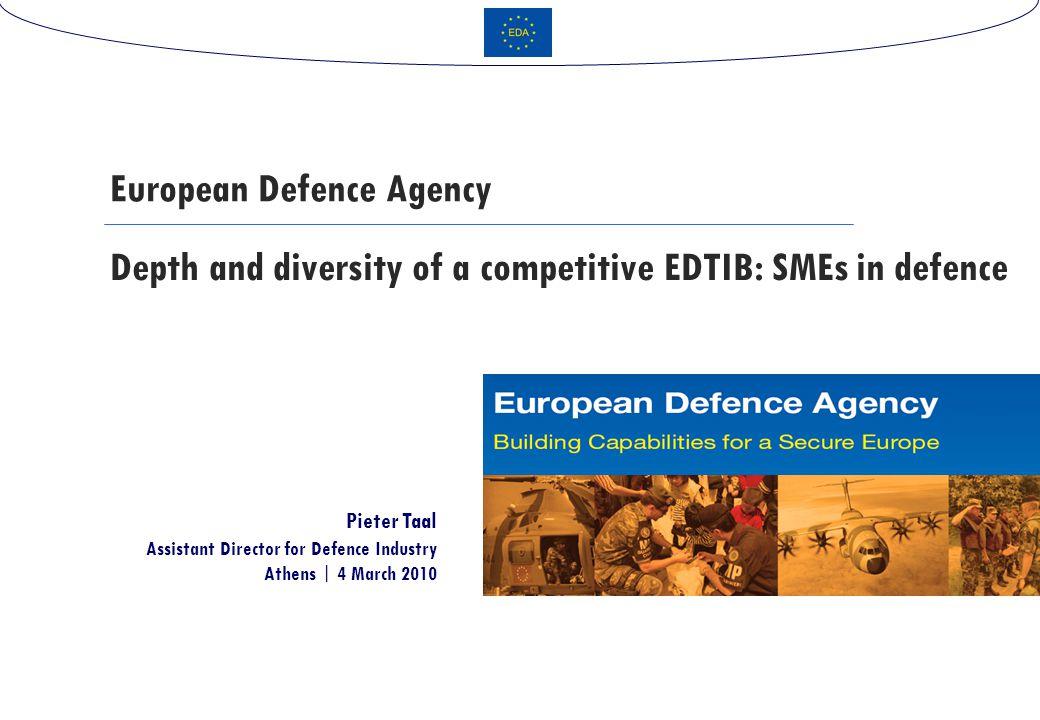In an increasingly interconnected global landscape, the dynamics of defense partnerships are evolving substantially, particularly within Europe. The European Defense Technological and Industrial Base (EDTIB) stands at the forefront of these changes, fostering collaboration among member states too bolster defense capabilities and innovation. However,the perception of defense industrial partnerships within this framework by non-EU countries remains an area of intricate complexity and strategic importance. This article delves into the case of the United Kingdom, a key player with a longstanding defense tradition, as it navigates its post-Brexit relationship with the EDTIB. Through an analytical lens, we will explore the perceptions, challenges, and opportunities associated with these partnerships, shedding light on how non-EU countries view their involvement in Europe’s defense ecosystem, and what it means for the future of transnational military cooperation.as the U.K. seeks to balance its national interests with collaborative defense initiatives, understanding these perceptions is crucial for both policymakers and industry leaders in shaping the future of defense collaboration in Europe and beyond.
Understanding the EDTIB and Its Role in Defence Industrial Partnerships
the European Defence Technological and Industrial Base (EDTIB) plays a crucial role in shaping the landscape of defence industrial partnerships, particularly with countries outside the European Union. For non-EU nations,such as the United Kingdom,participation in EDTIB initiatives can offer significant strategic advantages. The perception of these partnerships often revolves around access to advanced technology and collaborative opportunities that enhance national security and economic growth. By engaging with the EDTIB, non-EU countries can benefit from:
- Technological Transfers: Collaborative projects may allow for the sharing of cutting-edge innovations.
- Market Access: Opening doors to European markets can be economically beneficial for defence contractors.
- Strategic Alliances: Building stronger diplomatic and military ties with EU member states.
- Joint Development Programs: Facilitating co-production initiatives that leverage shared expertise.
However, challenges persist in how these partnerships are perceived, particularly concerning sovereignty and dependence on EU frameworks. The UK, having traditionally been a leader in defence capabilities, now navigates its relationship with the EDTIB with caution. Concerns include potential limitations on decision-making autonomy and the implications of EU regulations on local industries. To better understand this dynamic, the following table illustrates key factors influencing the UK’s perception of EDTIB partnerships:
| Factor | Perception |
|---|---|
| Technological Collaboration | Positive; enhances capabilities |
| Sovereignty Issues | Negative; concerns over autonomy |
| Economic Benefits | Positive; boosts local industry |
| Regulatory Constraints | Negative; affects versatility |

Perspectives on UK Defence Partnerships from Non-EU Countries
The United Kingdom’s defence partnerships with non-EU countries are perceived through a multifaceted lens, influenced by geopolitical context, technological aspirations, and economic factors. Countries outside the EU often view these partnerships as opportunities to bolster their own defence capabilities while together sharing the burden of global security. Key motivations for these nations include:
- Enhanced Military Capability: Collaborating with the UK can provide access to advanced technologies and expertise.
- Economic Benefits: defence partnerships can stimulate local industries through technology transfers and joint ventures.
- Strategic Alliances: Non-EU countries seek to solidify their international standing and influence by aligning with established military powers.
Furthermore, the UK’s prominence in the European Defence Technological and Industrial Base (EDTIB) reshapes the global landscape, eliciting varied reactions from its partners. Some nations express enthusiasm for joint initiatives, recognizing the potential for innovation and shared objectives in defence technology development. Yet, concerns remain about the implications of dependency, especially for countries wary of over-reliance on foreign military technologies.A glimpse into the fruits of these partnerships can be noted in the following table, which highlights key projects involving non-EU nations:
| Country | Project | Contribution |
|---|---|---|
| Australia | Joint Air Combat Training | Aircraft Integration technologies |
| Canada | Naval Shipbuilding Cooperation | Design and Engineering Support |
| India | Air Force Upgrade Program | Avionics and Radar systems |

Evaluating the Benefits and Drawbacks of Defence Collaborations
Defence collaborations, particularly in the context of the European Defence Technological and Industrial Base (EDTIB), present a complex landscape of advantages and challenges for non-EU countries. For nations like the United Kingdom, which historically has relied on its robust defence industry, partnering with European counterparts can yield significant benefits. these include access to advanced technologies, shared research and development costs, and enhanced interoperability among allied military forces. Additionally,such collaborations can bolster diplomatic relations and promote a unified approach to mutual security challenges.
However, the drawbacks of these partnerships cannot be overlooked. Concerns regarding national sovereignty often arise, as non-EU countries might fear dependency on European defence technologies and supply chains. This could lead to vulnerabilities in critical military capabilities during geopolitical strife. Moreover,ther are potential challenges in alignment of defence procurement strategies and operational doctrines,which may complicate joint efforts. To illustrate these points,consider the following table,which outlines the key pros and cons of defence collaborations for non-EU entities:
| Benefits | Drawbacks |
|---|---|
| Access to advanced technology | National sovereignty concerns |
| Cost-sharing on R&D | Dependency on foreign systems |
| Enhanced interoperability | Alignment of procurement strategies |

Key Factors Influencing Non-EU Countries Perceptions
The perceptions of non-EU countries towards defence industrial partnerships with the European Defence Technological and Industrial Base (EDTIB) are shaped by a variety of factors. One of the most significant influences is historical alliances and defence cooperation agreements. Countries like the United Kingdom, which have well-established military and defence ties with EU nations, often view these partnerships as extensions of their strategic interests. This relationship can bolster collaborative capabilities in research, technology sharing, and project development.Moreover, the existence of political dynamics and geopolitical considerations plays a critical role, with non-EU countries weighing potential partnerships against their broader diplomatic and security frameworks.
In addition to historical and political factors, economic motivations cannot be overlooked. Accessing the EDTIB can provide non-EU nations with cost-effective solutions for defence procurement and innovation, particularly in an era of tightening budgets and increasing operational demands.Factors such as investment opportunities and technology transfer policies are pivotal in shaping perceptions, as these elements can lead to significant advancements in local industries. Moreover, the perceived reliability and quality of European defence products frequently enough influence decisions, as non-EU countries measure these against alternatives in the global market. the landscape of perceptions towards the EDTIB is multifaceted and continues to evolve with changing geopolitical environments and economic circumstances.
Recommendations for Enhancing International Defence Cooperation
To enhance international defence cooperation, it is vital to foster deeper collaboration between the European Defence Technological and Industrial Base (EDTIB) and non-EU countries like the United Kingdom. Key strategies include:
- Establishing Joint Research Initiatives: Promote collaborative research projects that leverage expertise and resources from both EU and UK defense industries.
- Co-developing Future technologies: Engage in co-development programs focusing on emerging technologies such as artificial intelligence, cybersecurity, and autonomous systems.
- Creating Policy Frameworks: Develop clear policy frameworks that facilitate smoother integration of non-EU partners into EU defense procurement processes.
- Enhancing Facts Sharing: Strengthen mechanisms for sharing intelligence and defense-related information to address common security challenges.
Furthermore,establishing partnerships that focus on mutual benefits can prove essential. This can be achieved through:
- Joint Training Exercises: Organize joint military exercises that simulate real-world scenarios, fostering interoperability and trust between alliances.
- Sharing Best Practices: Facilitate workshops and forums where defense industries can discuss challenges and share prosperous strategies.
- Encouraging Investment: Promote initiatives that attract investment in defense innovation, particularly in dual-use technologies that benefit both defense and civilian sectors.
- Building Cultural Understanding: cultivate strong relationships through cultural exchange programs to enhance collaboration and mitigate misunderstandings.

Future Outlook for the UKs Position in the Global Defence Market
The United Kingdom is strategically positioned to enhance its role in the global defence market, particularly through partnerships outside the European Union. As nations look to bolster their defence capabilities amid rising geopolitical tensions, the UK’s robust defence industry, which is characterized by innovation and technological advancement, offers a valuable proposition. non-EU countries perceive the UK as a reliable partner, thanks to its reputation for high-quality products and refined engineering. This evolving landscape suggests a potential for expanded collaborations, especially in sectors such as:
- Cybersecurity – With increasing cyber threats, collaboration on defensive technologies and strategies becomes crucial.
- Artificial Intelligence – The UK’s emphasis on integrating AI into defence systems is gaining interest among non-EU countries.
- Naval and Maritime Capabilities – the Royal Navy’s advancements can serve as a foundation for joint operations and initiatives.
Furthermore, the UK’s involvement in the Global Defence Market could be amplified through strategic alliances with Non-EU countries, enabling shared research and development efforts. The incorporation of emerging technologies such as drone warfare and advanced satellite systems will likely be focal points of joint ventures. A look at partnerships currently in place highlights crucial areas of collaboration:
| Country | Partnership Focus | Developed Technologies |
|---|---|---|
| United States | Joint Military Exercises | Advanced Fighter Jets |
| australia | Cybersecurity Initiatives | Drones and Surveillance |
| Saudi Arabia | Defence Procurement | Shipbuilding and Maritime |
Concluding Remarks
the perception of defence industrial partnerships with the European Defence Technological and Industrial Base (EDTIB) by non-EU countries,particularly the United Kingdom,is shaped by a complex interplay of strategic,political,and economic factors.As the UK navigates its post-Brexit landscape, its approach to collaborative defence ventures reflects both a desire for innovation and a commitment to maintaining a competitive edge in global security. While concerns about sovereignty, regulatory divergence, and procurement processes loom large, there is also a keen recognition of the benefits that such partnerships can offer in terms of technological advancements and operational efficacy. As external factors continue to influence the dynamics of the EDTIB, the ongoing dialog between the UK and its European counterparts will be crucial in carving out a path forward. The implications of these relationships extend beyond mere economic considerations, affecting geopolitical alliances and the broader security framework in a rapidly changing world. For policymakers and industry leaders alike, understanding these perceptions is essential for fostering impactful collaboration that meets the challenges of modern defence demands.













